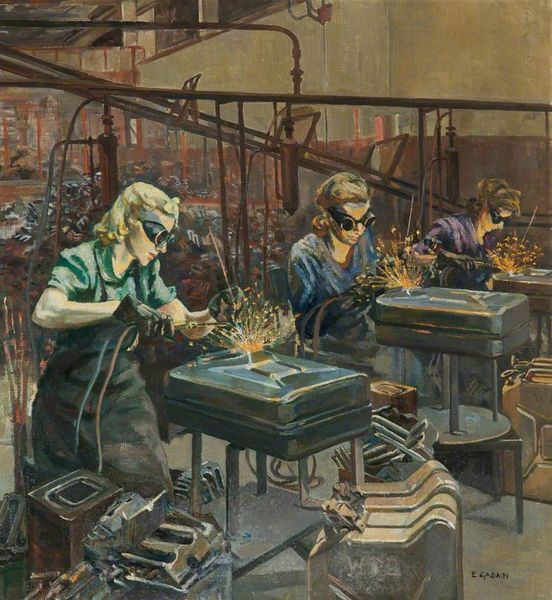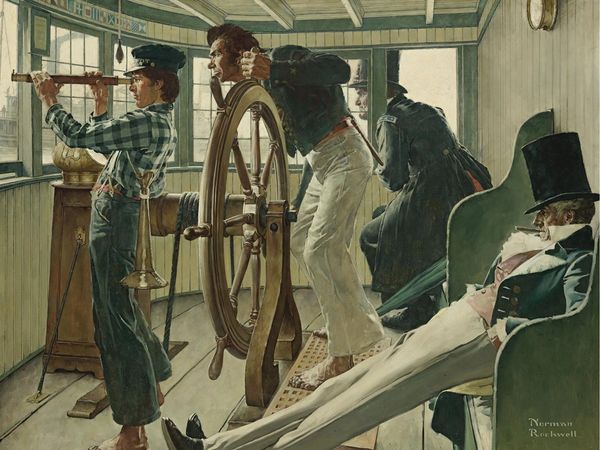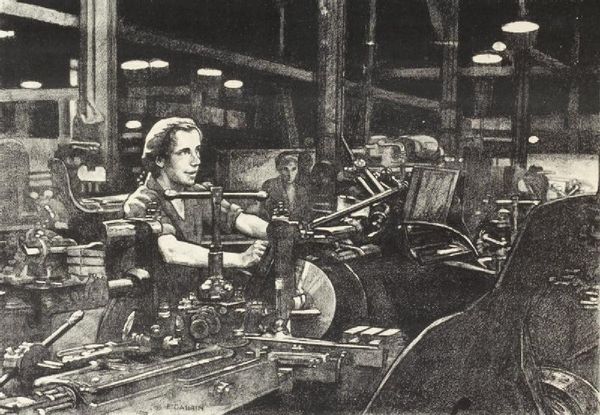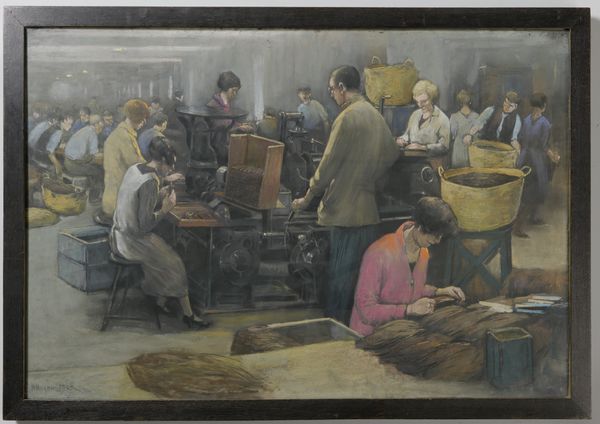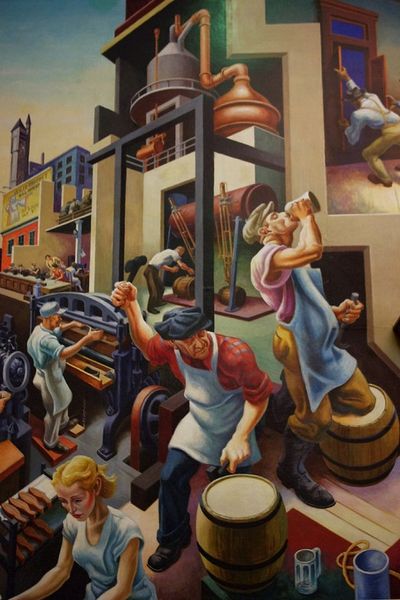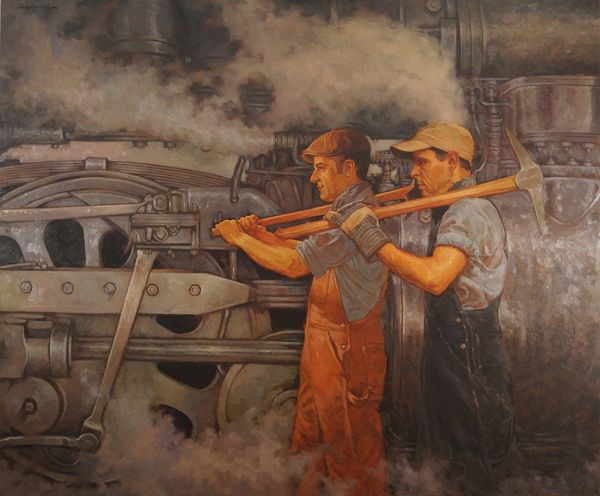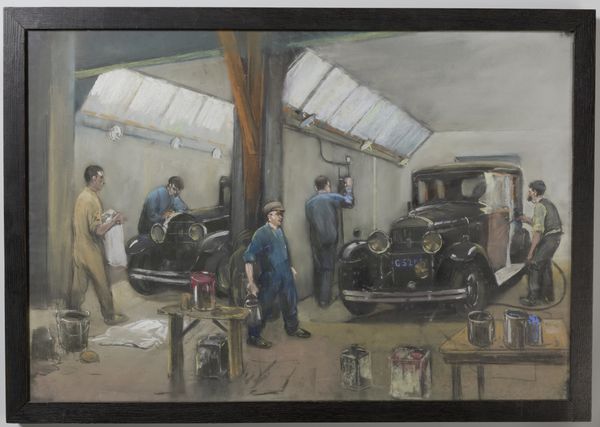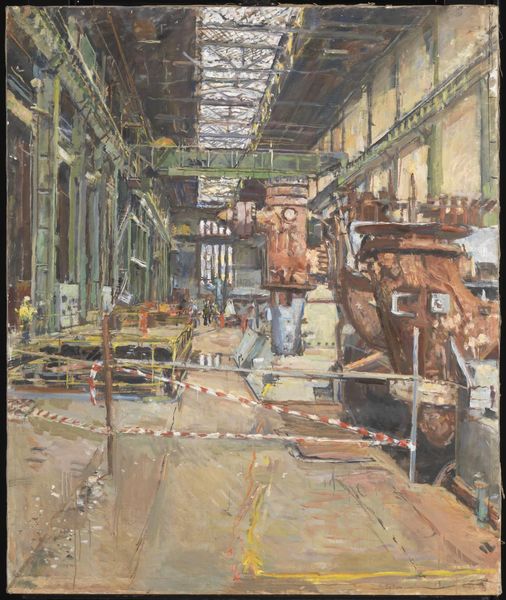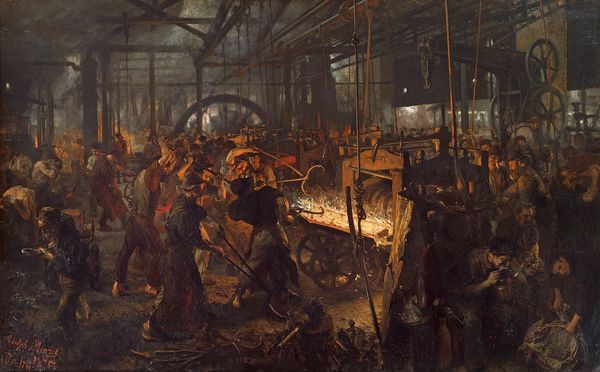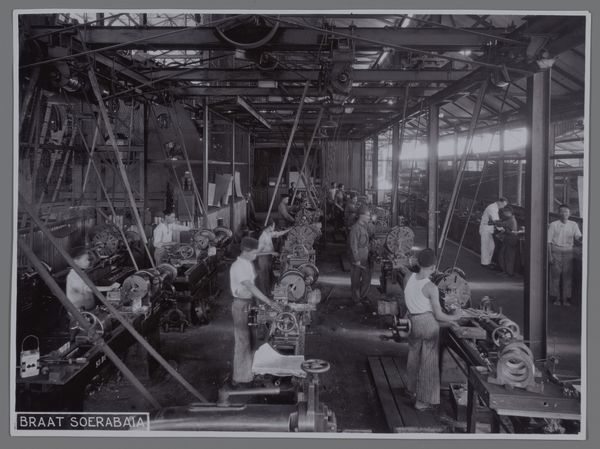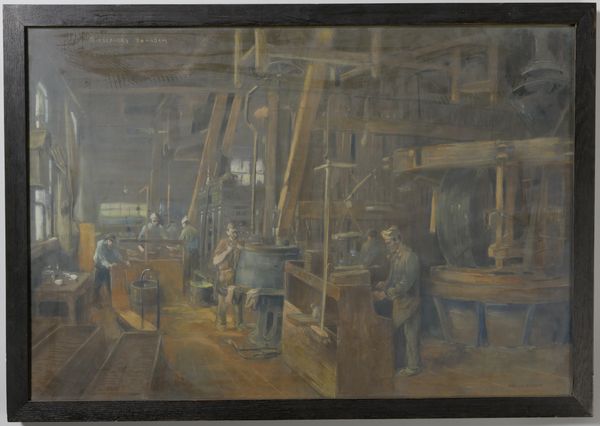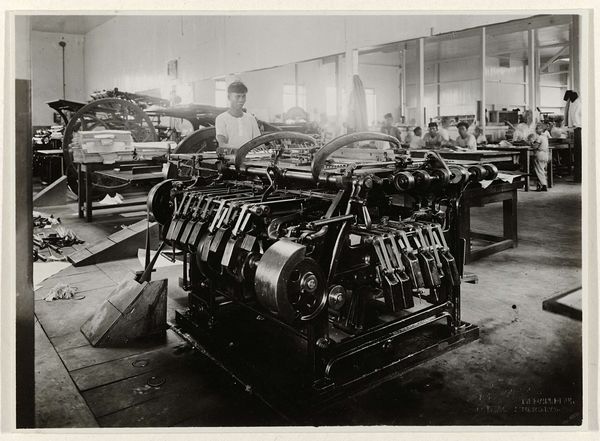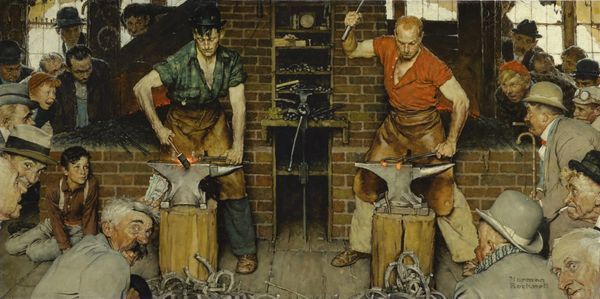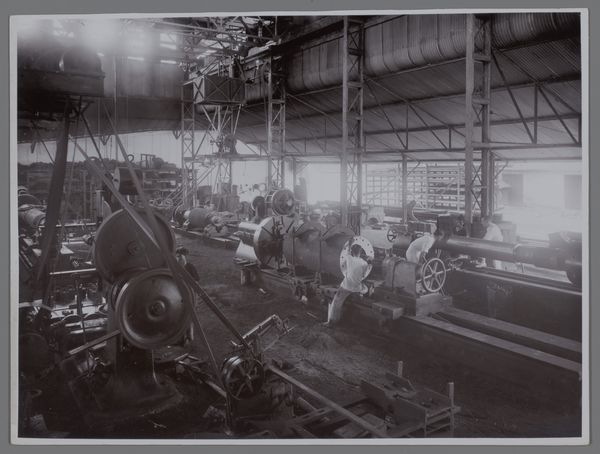
painting, oil-paint
#
portrait
#
narrative-art
#
painting
#
oil-paint
#
figuration
#
genre-painting
#
history-painting
#
modernism
#
realism
Dimensions: 100 x 86 cm
Copyright: Laura Knight,Fair Use
Editor: This is "Ruby Loftus screwing a Breech-ring" by Laura Knight, painted in 1943. It depicts a woman operating machinery in a factory. There’s such a focus on the mechanics and the activity. What strikes you about this piece? Curator: The sheer materiality is compelling. Knight meticulously details the metal of the machines, the fabric of the overalls, and even the texture of Ruby's skin. This elevates the labour itself to the level of artistic consideration. How does the depiction of this machinery impact your viewing experience? Editor: It's fascinating to see these industrial tools given so much prominence, almost like character portraits themselves. It definitely changes my understanding of labor's role in art. Curator: Exactly. Knight uses oil paint to capture the processes and physical nature of wartime production. Notice the repetitive nature of labour visualized in the rows of women, emphasizing both individual skill and collective effort in war industries. The focus shifts from grand narratives to the lived experiences within the means of production. Do you see how she's challenging high art’s traditional focus? Editor: Yes, it really does reframe what's considered a worthy subject for art. It makes me think about all the unseen labor behind objects we consume daily. Curator: Precisely. Knight compels us to think about the often invisible human processes embedded within manufacturing and consumption, ultimately blurring lines between art, craft and labour. Editor: This has opened my eyes to the relationship between materials, labour, and art in a way I hadn’t considered before. It’s more than just a portrait, it's a statement. Curator: Indeed, the focus on materiality gives voice and recognition to overlooked aspects of wartime effort, thereby influencing our own understanding of labor practices then, and today.
Comments
No comments
Be the first to comment and join the conversation on the ultimate creative platform.
